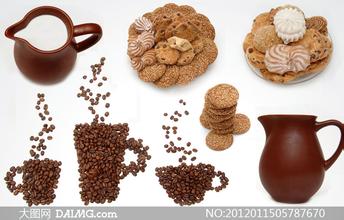A brief introduction to the Market Price of soft and fragrant Rwandan Coffee

Bourbon coffee grown in Rwanda is amazing for its sweet fruit, full-bodied, unrestrained and lingering aftertaste. This coffee has a delicious, citrus sweetness and a deep chocolate color. Bourbon, which can capture and concentrate the whole African charm in a cup, is one of the original varieties of Arabica coffee. In 2008, the annual professional competition of top coffee held by the American Fine Coffee Association SCAA, Rwanda Aromec, Rwanda, washed bourbon. Winning the 2008 champion COE (Cup of Excellence) Award, the champion of Rwanda's washed bourbon coffee is known as "the country of a thousand hills". The whole territory is mountainous and plateau, most of which have tropical plateau climate and savanna climate, and are mild and cool. There are about 33000 hectares of coffee plantations and 500000 people are engaged in the coffee industry. With the good natural conditions of high altitude and fertile volcanic soil, the country's fertile soil and suitable climate contribute to plant growth, and coffee trees seem to be driven or forced to grow upward, or because they grow too fast to produce the best coffee beans. The beautiful country of thousands of hills Rwanda has a long and rich culture for growing highland coffee, mainly high-quality Arabica coffee. Rwanda is the only country in the world that can fully enjoy the harmony between soil, altitude and climate. In this unique growing environment, Rwanda's high-quality coffee has a distinctive taste and aroma [product name]: Rwanda bourbon boutique coffee (Rwanda Bourbon Specialty)
[quality rating]: AA
[baking degree]: recommended baking degree city or deep city baking (City Roast or Full City Roast)
[grade]: good
[particles]: ★★ plump
[acidity]: ★★★ micro acid
[equilibrium]: ★★★ stable
[flavor]: soft, strong fragrance, with sweet fruit and wild grass aroma.
[coffee producing areas]: Butale area, southwestern Rwanda (Rwanda Butare)
[planting altitude]: 1200-1800 m
[raw bean variety]: bourbon original species (Bourbon Variety)
[raw bean treatment]: washing and refining method
[special]: since the 1920s, Arabica coffee grown in Rwanda has been famous for its unique fruit sweetness and rich grass aroma. In recent years, the Rwandan government has taken positive measures to vigorously promote coffee production, set up coffee production cooperatives in various places, and give technical guidance and financial support to farmers, so that coffee production has made considerable progress.
Since the 1920s, Arabica coffee grown in Rwanda has been famous for its unique fruit sweetness and rich grass aroma. In recent years, the Rwandan government has taken positive measures to vigorously promote coffee production, set up coffee production cooperatives in various places, and give technical guidance and financial support to farmers, so that coffee production has made considerable progress.
Like many African countries, Rwandan coffee is mainly produced by small farmers, and the ripe cherry fruits are collected and sent to the processing station every year during the harvest period. During the annual harvest period, the ripe coffee berries picked by farmers are concentrated in the treatment station for treatment, first selected by hand to ensure that no immature or damaged fruit is mixed in. Then remove the pericarp, wash the pectin in the channel after 12-18 hours of washing and fermentation in a cool and low temperature environment. During the drying process of the scaffolding, the members of the treatment station will turn manually and take care of them carefully to ensure that the raw beans with shells will not lose moisture or dry unevenly in sufficient sunlight, until the moisture content stability of raw beans is reduced to less than 14%.
Coffee producing areas in Rwanda:
There are about 33000 hectares of coffee plantations in Rwanda, with 500000 people engaged in the coffee industry. With the good natural conditions of high altitude and fertile volcanic soil, the country's fertile soil and suitable climate contribute to plant growth, and coffee trees seem to be driven or forced to grow upward, or because they grow too fast to produce the best coffee beans. The beautiful country of thousands of hills Rwanda has a long and rich culture for growing highland coffee, mainly high-quality Arabica coffee. Rwanda is the only country in the world that can fully enjoy the harmony between soil, altitude and climate. In this unique growing environment, high-quality coffee from Rwanda has a distinctive taste and aroma. Bourbon coffee grown in Rwanda is one of the original varieties of Arabica coffee.
Features of Rwandan Coffee:
The taste of Rwandan coffee is described as "grass aroma" with tropical climate characteristics. In addition to the sweetness of fruit, this coffee also gives people a feeling of freshness, clearness and freshness. Bourbon coffee grown in Rwanda is amazing for its sweet fruit, full-bodied, unrestrained and lingering aftertaste. This coffee has a delicious, citrus sweetness and a deep chocolate color.
Flavor: with light acidity, cherry, cinnamon, fresh and bright acidity, solid sweetness Rwanda (Rwanda) coffee with its high quality water washed Arabica coffee beans, eye-catching, more and more popular in the international market. According to Karuritwa, marketing and promotion officer of the Rwandan Coffee Association, Rwanda plans to export 3000 tons of coffee this year, further increasing coffee production to meet the increasing market demand. Starbucks, the world's largest coffee and beverage retailer, has also partnered with the Rwandan government to import Rwanda coffee, just as a brown pigeon flies from its cup against the line "Cup of Hope". Indeed, coffee places the hopes of the people of Rwanda. They hope to increase coffee exports to boost the country's economic development, and they also hope that the two tribes, the Hutu and the Tutsi, who once killed each other, will join hands to grow coffee and work together to build a better tomorrow. the taste of Rwandan coffee is described as "grass aroma", with tropical climate characteristics, this coffee presents a sweet fruit taste, it also makes people taste refreshing, clear, and fresh.
Important Notice :
前街咖啡 FrontStreet Coffee has moved to new addredd:
FrontStreet Coffee Address: 315,Donghua East Road,GuangZhou
Tel:020 38364473
- Prev

African Coffee with unique character A brief introduction to the History and Culture of the Origin and Development of Rwandan Coffee
Rwanda, located in the southern equator of central Africa, is a landlocked country, bordered by Tanzania to the east, Burundi to the south, the Democratic Republic of the Congo to the west and Uganda to the north. The territory is mountainous, known as the country of a thousand hills. The divide between the Congo River and the Nile River runs through western Luanda from north to south. Rwanda's economy is dominated by agriculture. The population engaged in agriculture and animal husbandry accounts for 92% of the country's population. By
- Next

A brief introduction to the climate and altitude of Malaba coffee varieties in southern Rwanda
Coffee from Rwanda is becoming more and more popular in the international market. The mission of the Rwanda Coffee Association is to manage and supervise the operation of the coffee industry in Rwanda from production to sale. The recently revised mission focuses on policy formulation and implementation, with more emphasis on the need to improve the professionalism of the coffee industry and to increase marketing efforts. Since Rwanda
Related
- Detailed explanation of Jadeite planting Land in Panamanian Jadeite Manor introduction to the grading system of Jadeite competitive bidding, Red bid, Green bid and Rose Summer
- Story of Coffee planting in Brenka region of Costa Rica Stonehenge Manor anaerobic heavy honey treatment of flavor mouth
- What's on the barrel of Blue Mountain Coffee beans?
- Can American coffee also pull flowers? How to use hot American style to pull out a good-looking pattern?
- Can you make a cold extract with coffee beans? What is the right proportion for cold-extracted coffee formula?
- Indonesian PWN Gold Mandrine Coffee Origin Features Flavor How to Chong? Mandolin coffee is American.
- A brief introduction to the flavor characteristics of Brazilian yellow bourbon coffee beans
- What is the effect of different water quality on the flavor of cold-extracted coffee? What kind of water is best for brewing coffee?
- Why do you think of Rose Summer whenever you mention Panamanian coffee?
- Introduction to the characteristics of authentic blue mountain coffee bean producing areas? What is the CIB Coffee Authority in Jamaica?

